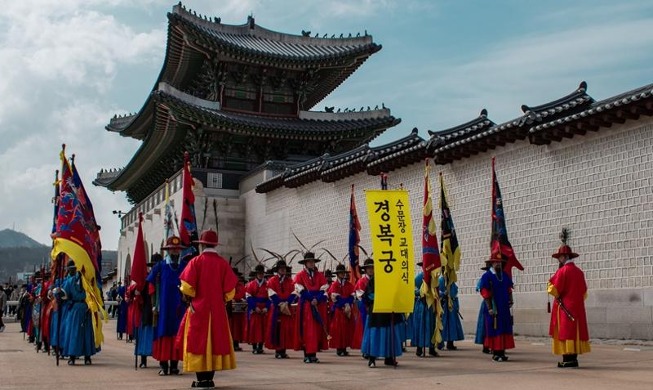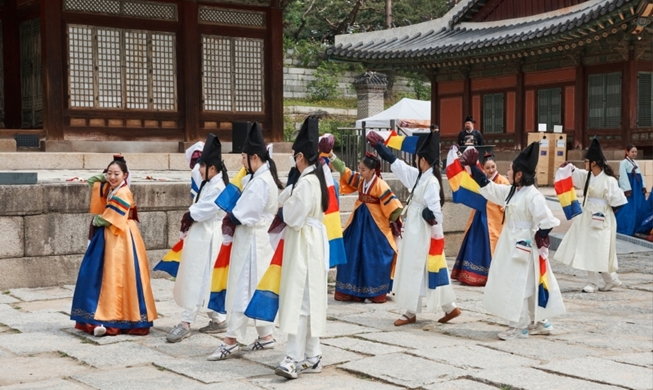-
 Korea.net's 24-hour YouTube channel
Korea.net's 24-hour YouTube channel- NEWS FOCUS
- ABOUT KOREA
- EVENTS
- RESOURCES
- GOVERNMENT
- ABOUT US
View this article in another language
- 한국어
- English
- 日本語
- 中文
- العربية
- Español
- Français
- Deutsch
- Pусский
- Tiếng Việt
- Indonesian
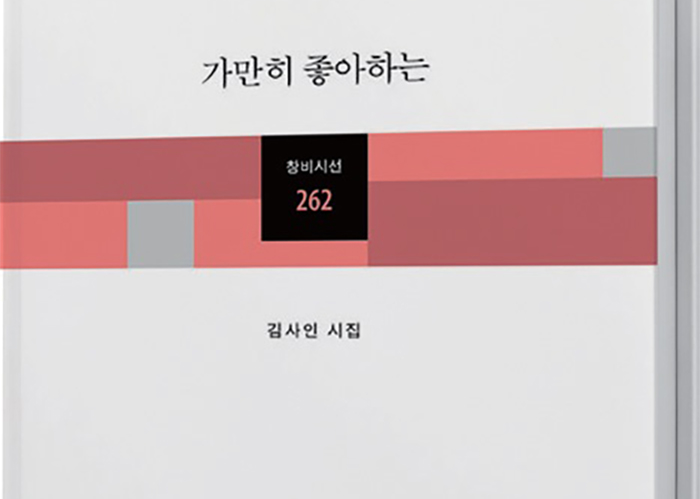
A Spring Night
“When I die, you’ll donate at least fifty thou’, won’t you, old brother? Nowadays a lot of people only pay thirty thou’, but for me, you’ve got to give at least fifty; you will, won’t you? Sure?” A phone call from roughneck Yi Something (age 47), sloshing about in pungent waves of drink, one spring night.
“Here, red-bean buns, you’ve got to eat them while they’re hot.” Screaming like he’s swallowed a train, poet Park Something (age 47) barges into the middle of the solemn gathering and hands over a plastic bag. “Give me a kiss, one kiss!” He thrusts out a face black from drinking, one spring night.
“At any rate, we have to be clear about marking our beginning and end, fellas!” Jang (age 51), the owner of a chicken-and-carpsoup restaurant fusses. “To start, let’s sing the national anthem.” “Aigo, it’s the first time such a fine song has ever been heard at our place!” The halfwit bar woman (age 50) remarks, pouring on and on, even the leftovers she’d grabbed from a table no longer occupied, one spring night.
“It’s a hundred twenty thousand won, but I’ll just take a hundred thousand.” So with an “Are you sure?” they fumble through wallets, finally putting fifty thousand on the slate; then, with a “Still, let’s have just one more,” they wave an index finger, pulling one another by the sleeve to a streetside cart-bar, one spring night.
Death, too, blooms in crimson spots.
Kang Something, Kim Something, O Something, they’ve all gone on ahead.
I, too, would rather drift off to some southern streamside
and fall without a care like a clumsy magnolia,
needing another fifty thousand won
for reasons this and that, one night.
Near a Firing Range
A pheasant squawks. A turtle dove coos.
Pine trees stand idle, heads laden with blossom.
The forest still looks tender green, innocent.
Like a twelve-year-old Iraqi girl. Amidst the ruins
there is green in thick brows and large eyes, too.
Is that an ancient weariness or a death-like despair?
The pheasant squawks again. Wretched thing.
With neither hatred nor pity, just speechlessly,
those American fellows Bush and Rumsfeld come to my mind.
Are their pine trees tender green too? Signifying what?
The pheasant calls, speechless, not a real call, just a squawk.
Are there pheasants in the land of the 12-year-old girl and her young father?
The air is full of flies having fun.
They’re like third-grade school kids let loose in a playground.
We have to put up with children.
But there is no hope in blatant ignorance.
I un willingly recall the department store custom where things must be expensive
in order to sell, a former president claiming 290,000 won was all he owned,
television, professional sports, and the like.
Breaking the silence, a bird bursts forth.
Whatever, it’s all good. (No, it’s not good).
I have no intention of blaming anyone after all this time.
We are beginning to resemble the thing
we have long been dreaming of together in harmony (pigs or hyenas, for example)
and, as ever, the plants wear innocent, languid expressions,
the ants run about this way and that, but
they don’t look very greedy.
A cigarette butt discarded long ago,
lies amongst them, soiled, as though one family.
A pheasant squawks.
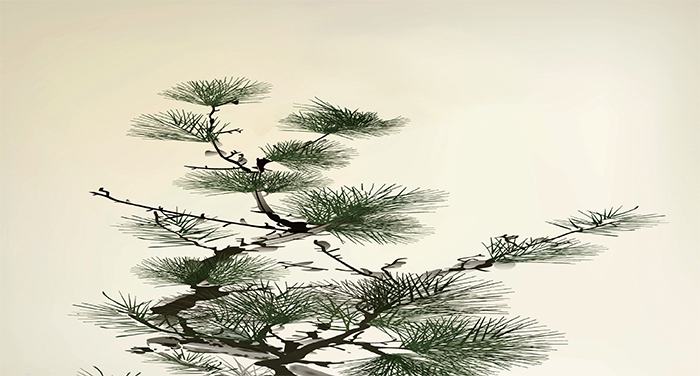
Gunha-ri in Winter
Between abandoned houses
ash-hued roads pass.
Like abandoned brooms
trees stand pegged along the roadside.
Beneath abandoned walls
red plastic tubs of pepper paste, black plastic bags, and scraps of styrofoam
lie half-buried in the ground.
At the end of the wall, pushing open an abandoned side door
an old man in a fur-lined jacket appears, crouching.
He’s going somewhere with slow steps.
An abandoned dog sways after him.
The door of the butcher beside the barber opens briefly,
some one splashes water into the street, closing the door behind him.
The dust-pale canvas door of the store lifts
as a youthful soldier in army green
clutching a five-pack of ramen, smile aglow
cuts over the crossroad.
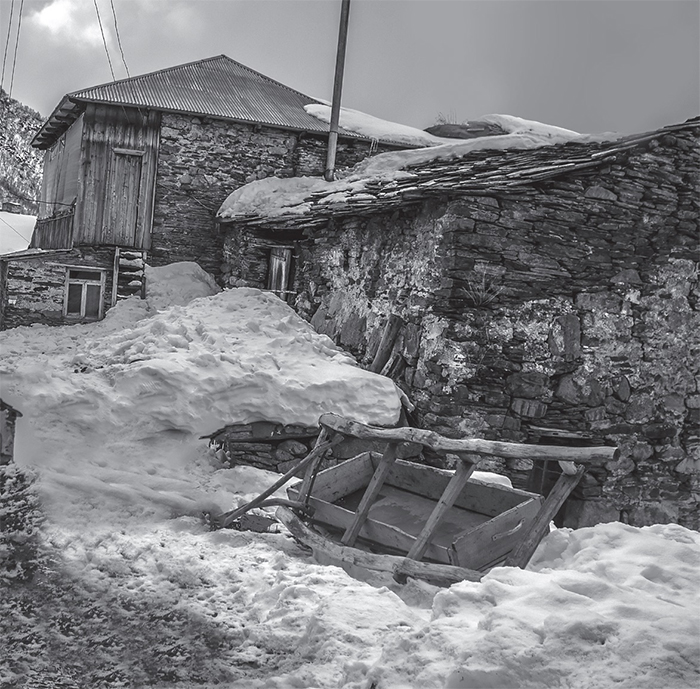
Deokpyeong Market
His three fingers are embarrassed.
Holding packs of cotton buds and disposable bandages,
he shouts, One thousand won!
But buyers are few.
His eyes sting in the blazing sun.
Wid ow Yun of the acorn-jelly shop shouts, Come have a bite to eat!
With brisk wet hands
she serves up acorn-jelly.
Kim of the clothing rummage sale charges out from the Co-op Bank corner
rattling his moneybelt.
His hands hold seasoned chicken feet and soju.
Business must be booming.
He continues to fuss while wiping sweat beneath his visor.
After a few swigs poured down his parched throat he gets drowsy.
Knowing she won’t take them,
he holds out a couple of bills.
He studiously ignores Widow Yun’s bright arms and breast,
his mutilated hand bashful as it retracts.
Suppose I take some Dorco sets or toothbrushes to market tomorrow?
The sun is still high.
One thousand won a pack!
He suddenly raises his voice.
Thirty Years, He Mumbles
--30th High School Reunion
Thirty years! Startled by his own voice
he wakes with a jolt from a dream:
Pack the drill uniform, prepare the lunchbox,
it’s time to get moving.
What a lifelike dream!
Dream of setting off for Seoul or somewhere, becoming a student; dream of landing a job; dream of learning liquor and smokes, and women, too; dream of moving around, lodging, boarding, tutoring, rotting for three years in the army; dream of studies abroad, groveling; dream of returning, finding a sweet-eyed woman and getting married; dream of setting up house together; dream of having a baby with her; dream of the child growing up; dream of fretting for the children to enter college; dream of an unstable job; dream of a late promotion; dream of making a killing on the stock exchange; dream of losing it again; dream of running away; dream of weeping alone; dream of parents falling ill; dream of who gets taken first; dream of a family row over taking care of whichever parent’s left; dream of not breaking up for the children’s sake; dream of moving into a bigger place; dream of buying a bigger car; dream of struggling to entertain, to play golf; dream of taking early retirement one day; then, then, dream of the wife departing first; dream of departing myself, leaving behind the wife and kids; dream of receiving an invitation to the 30th class reunion; dream of hearing the wife complain, “Why do they want you to pay so much?” while my heart drifts off, thinking: “Has it already been that long?”
As he stands in front of the cold mirror, mumbling, “Thirty years,”
beyond the thinning hair, beyond the wrinkles, far away,
carrying under his arm a bag stuffed with Principles of Mathematics I and Comprehensive English,
he is running, youthful, his buzz-cut flushed red.
As he quietly repeats, “Thirty years,”
a fresh peppermint smell seems to rise from the pit of his stomach,
a whiff of well-fermented salted fish seems to follow;
the scent of a grim evening’s bitter shot of soju and regret seem to linger;
a smell of dried pepper-stalks burning seems to come wafting.
The buzz-cut youth in the mirror
darting into the classroom, dodging tardiness by a finger’s breadth—
there’s no telling if his early morning dream
has left him happy or sad.
Long Ago
I miss the dizzying smell of grass, the insect sounds,
the crunch of dewdrops against our ankles
as we pushed through the woods
along that summer night path.
Like two naive fawns
our bodies flushed, yes, our bodies flushed,
we advanced along the rain-washed mountain path,
took short breaths,
touched arms now and then, pretending not to,
drew close, inhaled the other’s scent, pretending not to.
In the darkness, beneath your bound-up tresses,
the flesh of your nape translucent.
And my hands, a mass of scratches, they were lovely, too.
Passing ridge after ridge,
on the hillside path behind your village
your older brother’s eyes glared as he waited anxiously.
But we, two shy wild animals barely woken from a dream,
never even held hands.
On the way back home
I screamed songs at the top of my voice.
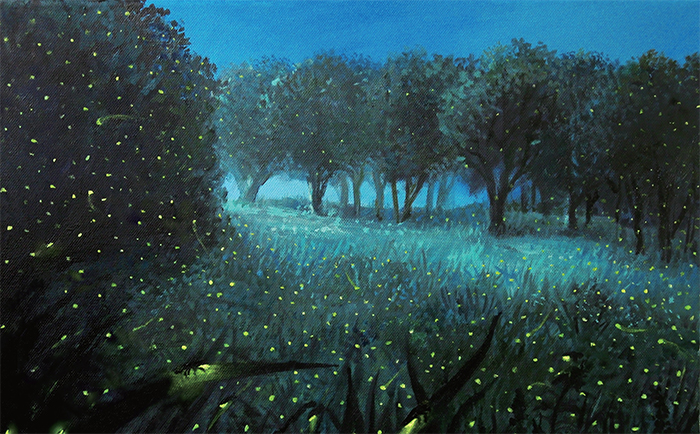
A Bird
Bird,
flown upstream
as far as this city riverside,
seagull,
your gestures are already peaceful,
you are not a thing of this world.
There is nowhere here
for you to shake your head and furl your wings.
Beyond your graceful wing-beats time has stopped,
only a death-like stillness lies deep, so deep.
Who can know
the secret tension in the muscles, the two bloodshot eyes
that launch the body into air?
There is nobody here
and you so dignified.
Return and rest, bird.
Into the beautiful sky of days to come.
On the spot where you passed
not one persimmon petal has fallen.
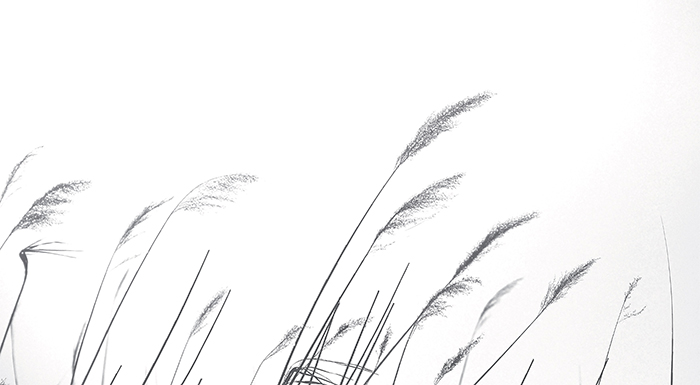
Kim Sa-in is a professor of creative writing at Dongduk Women’s University. He was a visiting professor at Harvard University’s Korean Institute, and participated in the International Writing Program at the University of Iowa in 2010. He has received the Daesan Literary Award, Hyundae Literary Award, and Sin Dong-Yup Grant for Writing. His poetry was featured in the 2015 fall issue of Mānoa.
*Article from the List Magazine published by the Literature Translation Institute of Korea




